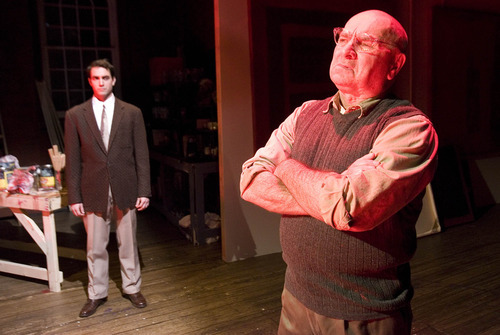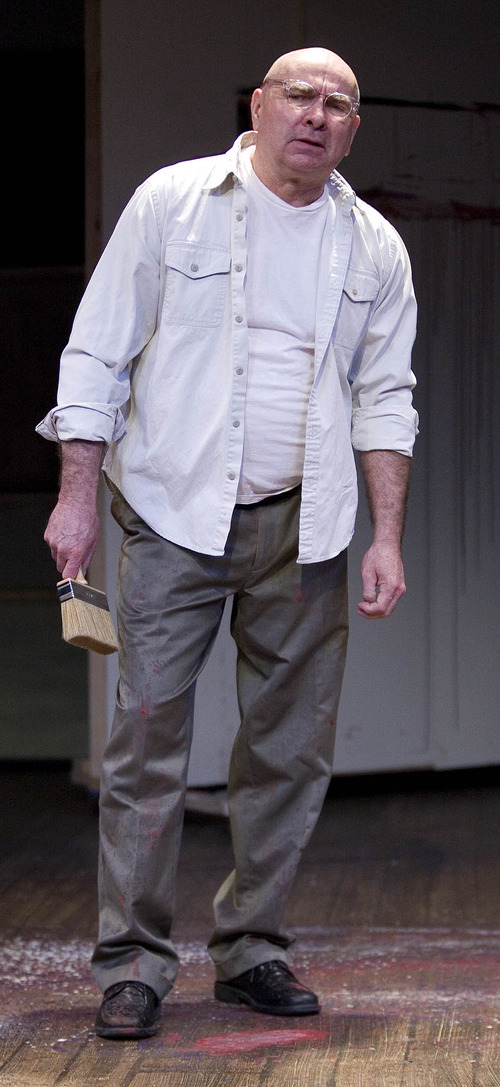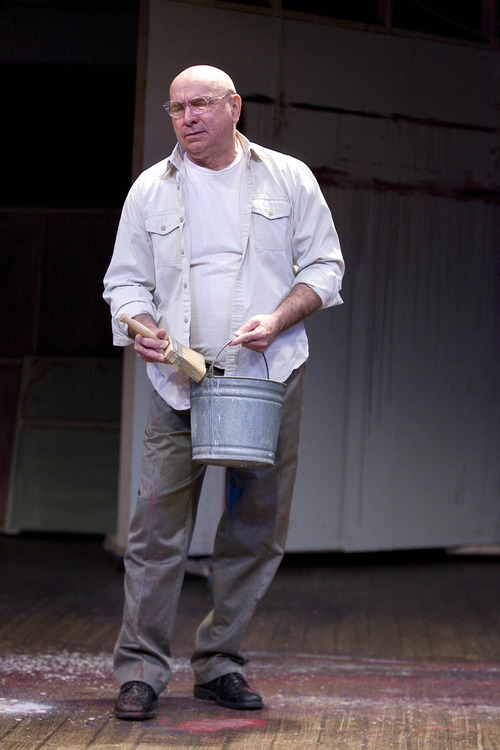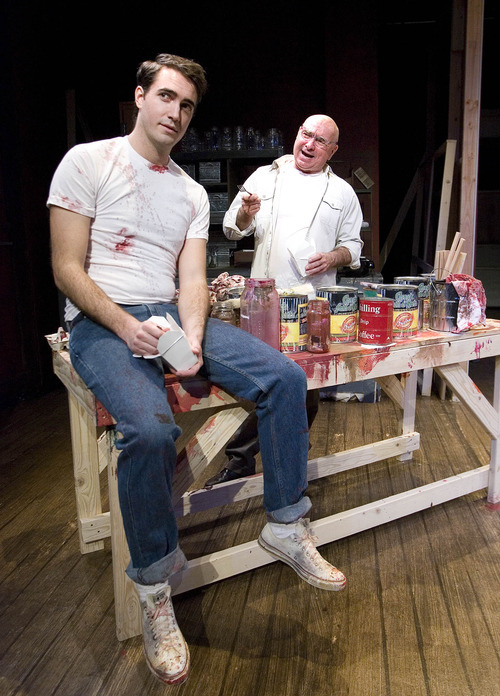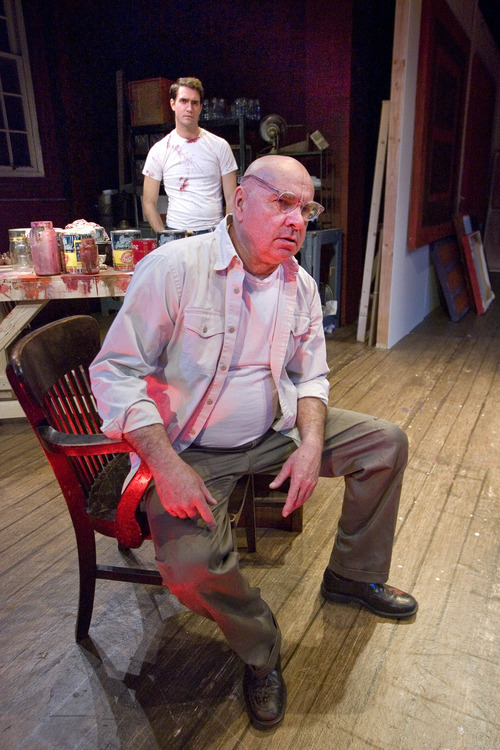This is an archived article that was published on sltrib.com in 2012, and information in the article may be outdated. It is provided only for personal research purposes and may not be reprinted.
Morgan Lund, who plays modern art's most famous abstract expressionist, Mark Rothko, in "Red," said he had no problem zeroing in on the most pivotal line in John Logan's play.
"It all comes down to two lines, actually," Lund said during an interview next to Salt Lake Acting Company's main stage. " 'What do you see?' and 'Are you a human being?' "
Much like the mesmeric, large-scale murals drenched in color that form Rothko's legacy, however, the five scenes of Logan's award-winning 2009 play shift and speak every time they're read, rehearsed and afterward, reconsidered.
Also like Rothko's art, the play itself works for maximum impact with minimal, seemingly simple, tools. "Red" employs only two actors, one set and an "imaginary painting" that hangs directly in front of the audience.
"The script carries the same theme throughout," said director Keven Myhre. "But he crafts it so that you hear it in different ways each time."
Based on playwright Logan's extensive research into Rothko's life and work, "Red" can come across as one long, extended quarrel between the great colorist and his fictional mentor and assistant Ken, played by Ted Powell. In line after line, Rothko mocks, taunts and even outright provokes Ken's bright-eyed naïveté about the 1950s art world, during an era when the most celebrated artists, such as Jackson Pollack and Andy Warhol, seemed to submit to or even celebrate the crass commercialism gaining ground in the United States.
At least, according to Rothko. Apart from the pack, he sees himself as standard-bearer of art that speaks to the mysterious tragedies and struggles at work in the human soul as others are content being commodified.
"A picture lives by companionship," Rothko tells his young charge. "It dies by the same token. It's a risky act to send it out into the world. There is only one thing I fear in life, my friend. … One day the black will swallow the red."
While hitting briefly on personal tragedies both men suffered, Logan's script shows the ways artists might sublimate motivations into their work.
But far from salon talk about aesthetics, the play's arc culminates in Rothko's famous decision to turn down the lucrative commission for a series of paintings that will hang above the dining tables of the Four Seasons Restaurant inside New York City's Seagram Building. As Powell said, there are moments when his character "pauses to put on his boxing gloves" to go a round with the master.
It's after three scenes of listening, digesting and reflecting on Rothko's greatness and vanity that Ken feels compelled to expose his employer's pretensions and vanity. The exchange informs not only Rothko's decision regarding the Four Seasons commission but also the play's culminating scene and — Logan hints — his tortured death.
Regardless of the audience's interest in art, modern or not, the play speaks to the exchange of wisdom and expertise transacted between generations, Myhre said. It's through multiple exchanges between Rothko and Ken that the play shows how artistic vision is crafted, preserved and then made new again.
"What Logan's done is show how this knowledge crosses over to youth through strong men like Rothko, so their knowledge of the world can transcend it," Myhre said. "Rothko was an artist who realized greatness not just in himself, but in everything he looks at — everything around him. He asked, 'How do I get people to look at my work, and realize the greatness inside themselves.' "
But Logan's script is no exercise in Rothko idol worship. There are times when Ken, based on one real-life assistant Rothko employed for two years, gains the upper hand to expose the painter's deep-hidden vanity and hypocrisy. Rothko comes across as someone so deep inside his own head that he can't find a way out.
For all its furious, sometimes hell-bent, dialogue intent on diving into the primal source of artistic impulses, "Red" is also a valuable reminder of how people learn and grow.
"You can't be told what or where your own greatness is by someone else," Lund said. "What you need most is someone who will tell you, in the right way, to go out and find it. That's what this play says to me."
Twitter: @Artsalt
Facebook.com/nowsaltlake —
'Red'
The Salt Lake Acting Company presents a regional premiere of John Logan's play about artist Mark Rothko, which premiered on Broadway in 2010.
When • Previews Feb. 8 and 9, 7:30 p.m. Opens Feb. 10, 7:30 p.m., playing through March 4. Wednesdays-Saturdays, 7:30 p.m.; Sundays, 1 p.m. and 6 p.m.
Where • Salt Lake Acting Company, 168 W. 500 North, Salt Lake City.
Tickets • $15-$41. Call 801-363-7522 for visit http://www.saltlakeactingcompany.org for more information.


